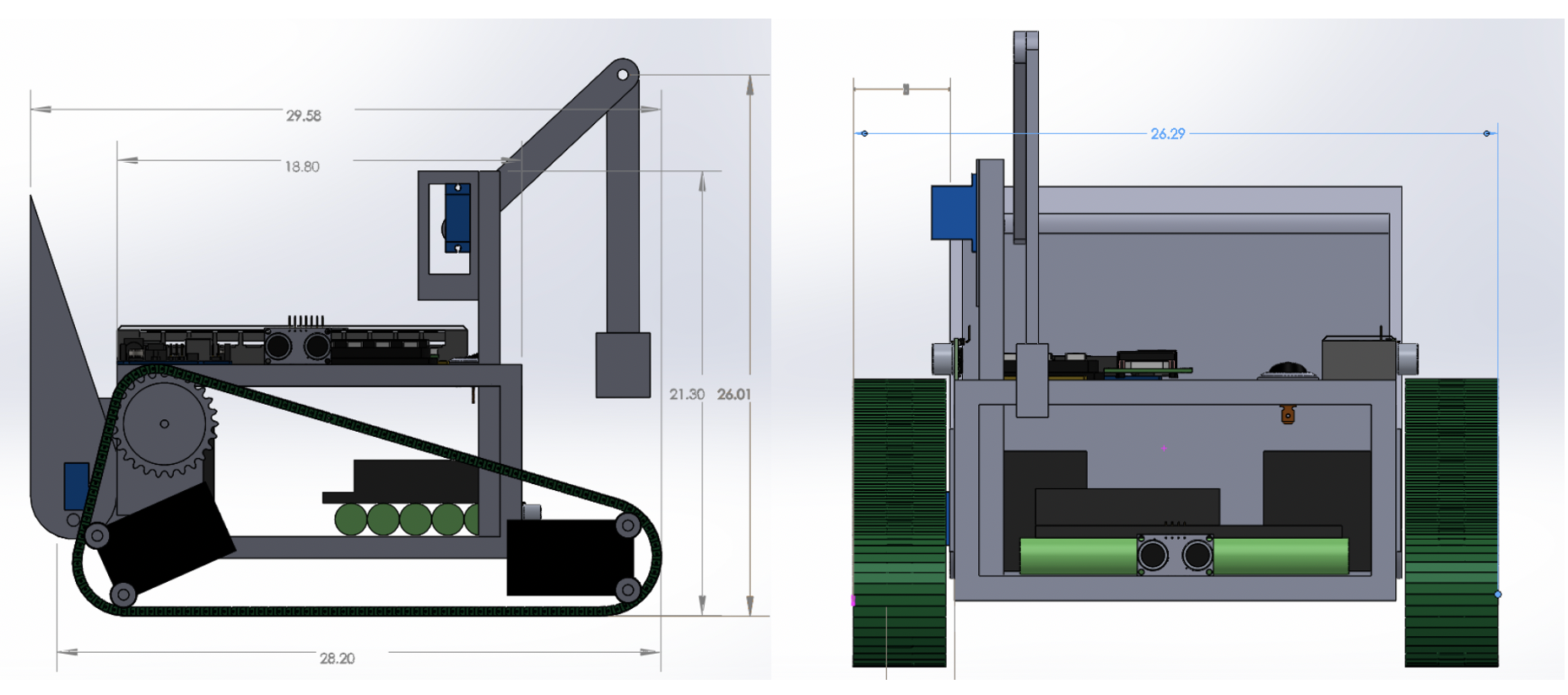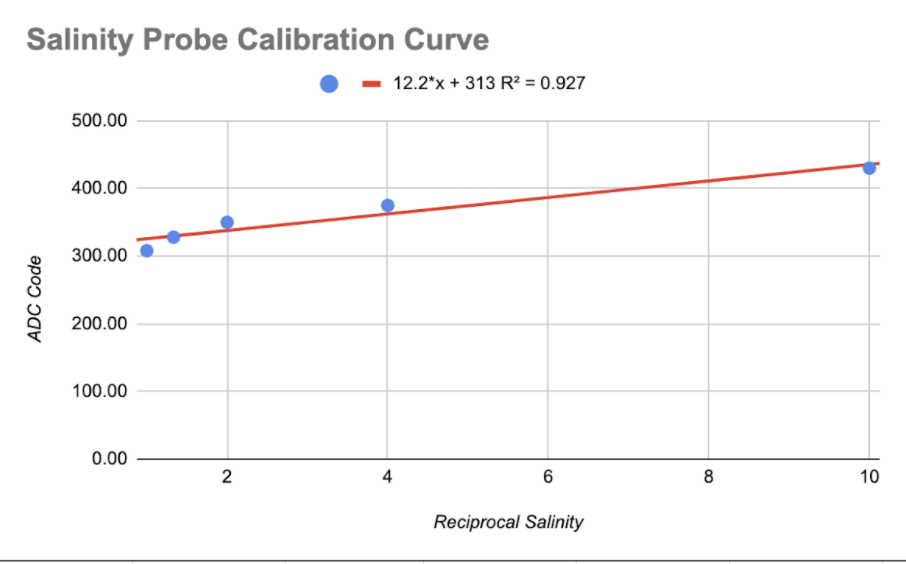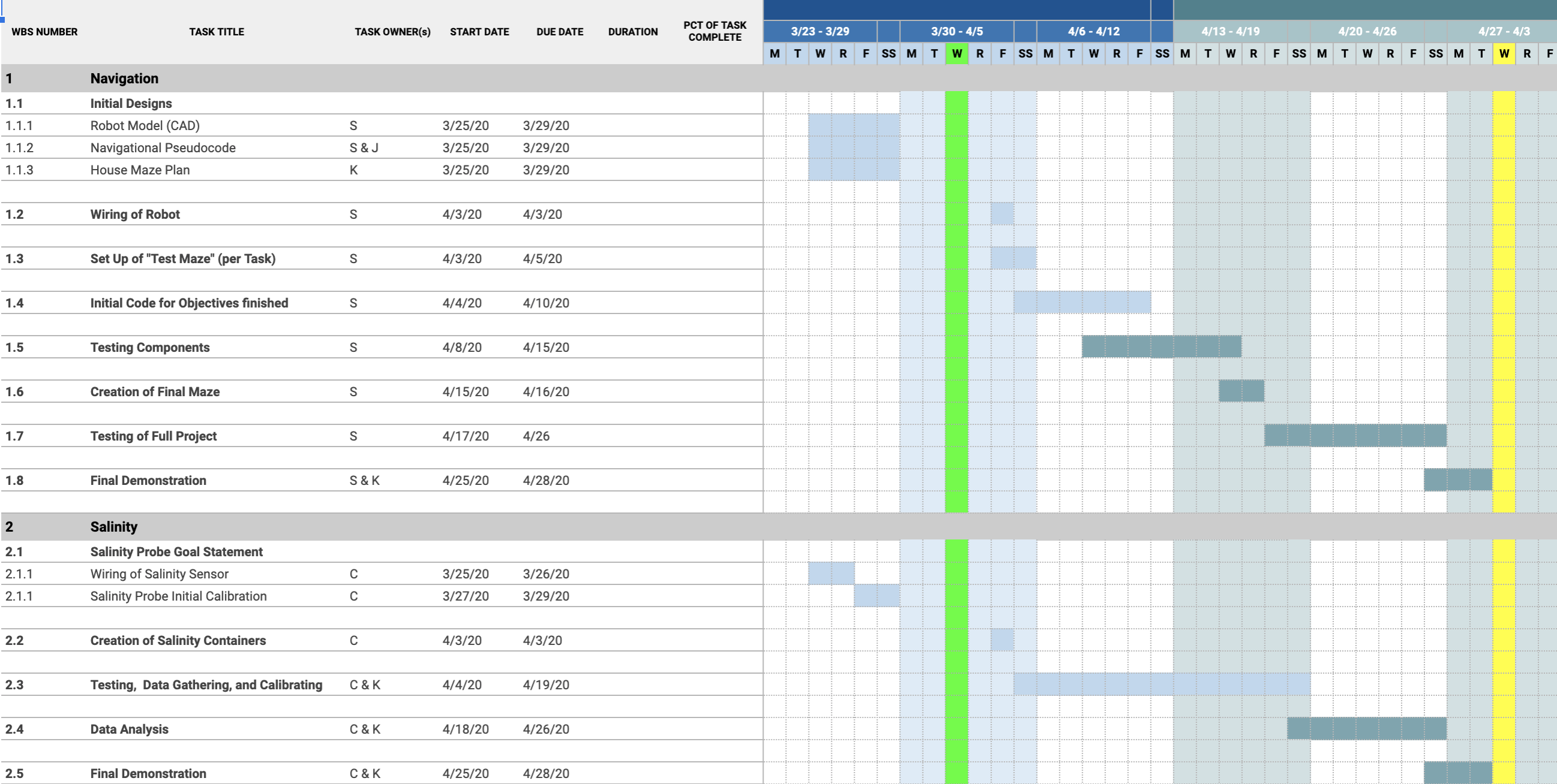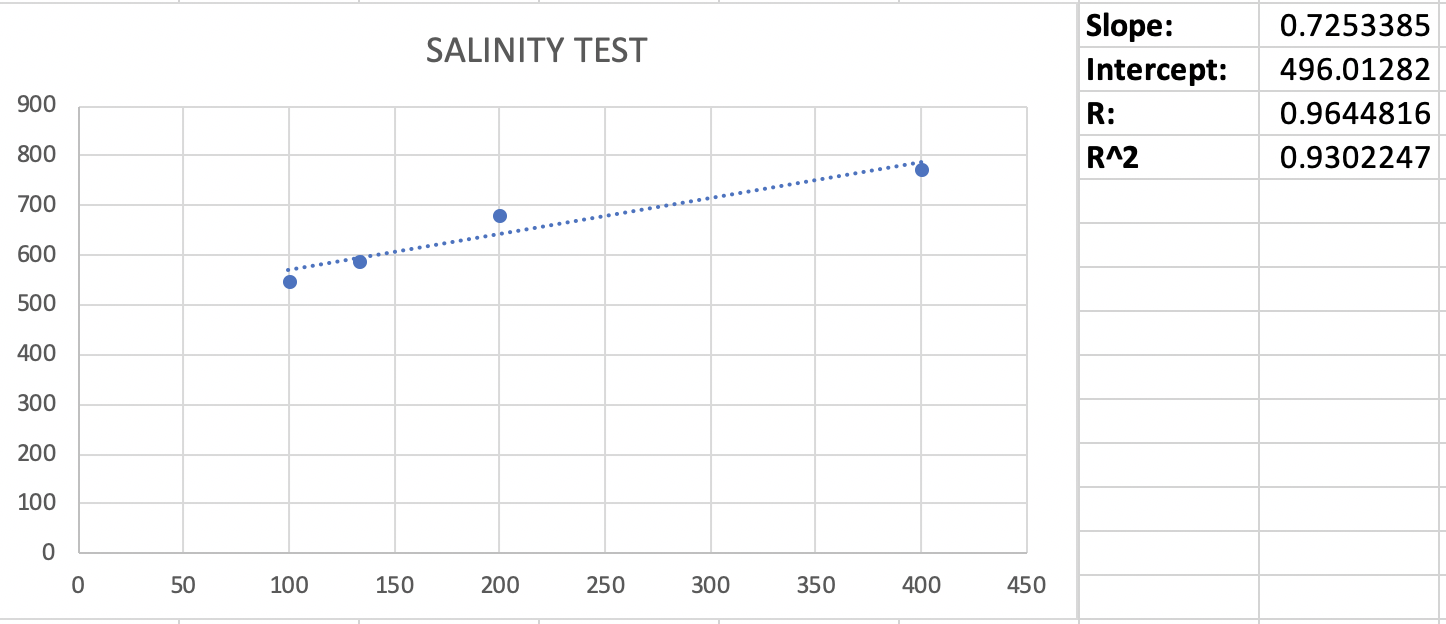Kevin Leong
Computer Science (B.S.) & Creative Computing (B.A.)
Introduction to Engineering Design
Introduction to Engineering Design is a team-based course in which a group of 4 or 5 students design and create an automous robot that completes a variety of tasks. Specifically, the robot was tasked to navigate a maze and take a salinity reading (from 0% to 1%). I assisted with the design and construction of the machine as well as the development of a fully calibrated salinity sensor. However, when the COVID-19 pandemic spread our team across the nation, I spearheaded the data collection and organization of the team. I utilized my experience in Microsoft Excel and knowledge in statistics to efficiently collect and analyze all testing and calibration data from both the robot navigation team and the salinity team.
Here is the CAD model for our robot’s design:

This is the calibration graph and curve for the salinity sensor:


Not only did the class require a variety of mechanical skills, it also demanded time management skills. As the team’s coordinator and created a detiled Gantt chart to organize the team’s efforts. As well as this, I ensured that the team not only met the set deadlines, but also the requirements of the project.
Below is the Gantt chart created in Microsoft Excel:

I now work as a teaching assistant for the class, providing mechanical knowledge and assistance. During this time, I developed a more accurate salinity sensor which can detect 0% to 0.001% salinity percentages.
Below is the calibration and testing data for the new salinity sensor:

Not only this, I act as a teaming advisor, helping resolve issues between teammates and groups. I really enjoy this position as not only do I get to learn more about several different disciplines of engineering, but I also get to help my peers accel in engineering design